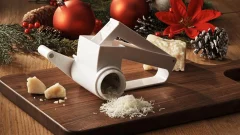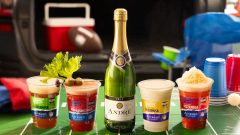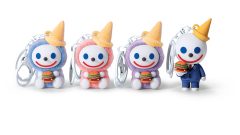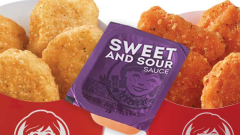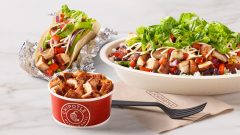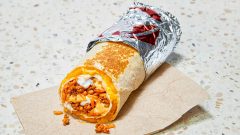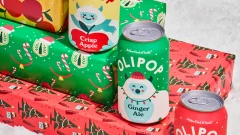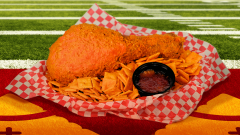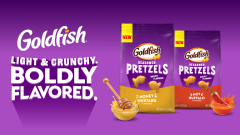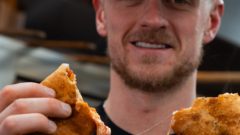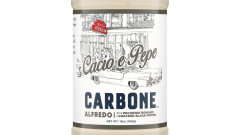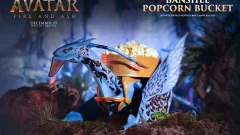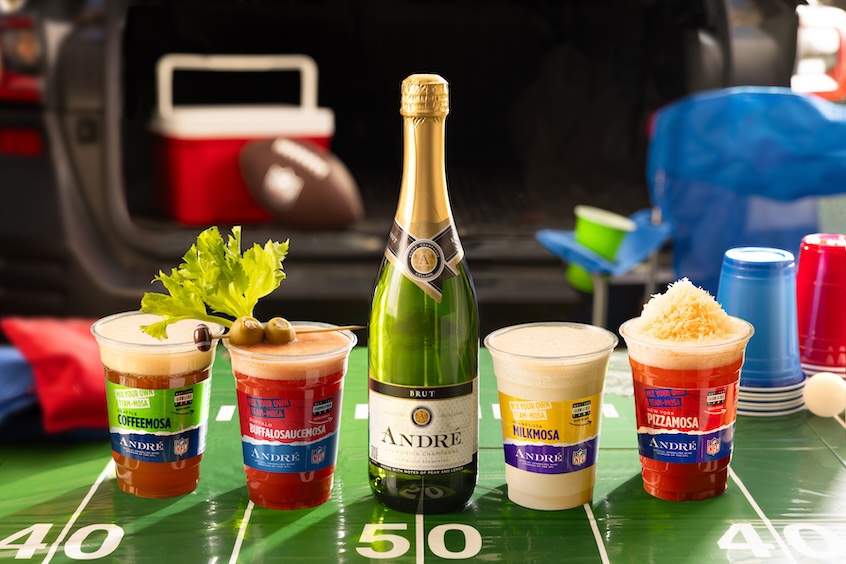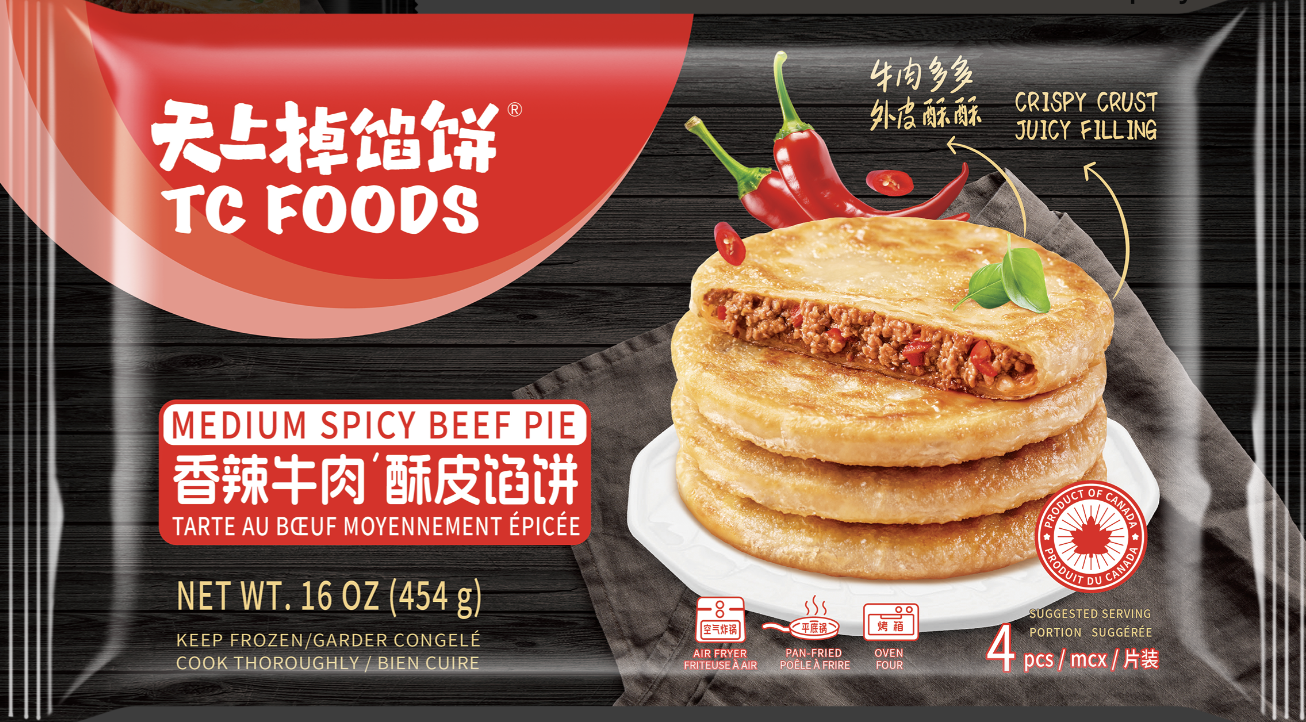Andrew Zimmern Talks Bizarre Foods America [INTERVIEW]
There are few things in the world that Andrew Zimmern won’t eat. Walnuts are one of them.
Andrew is a father, chef, food writer, teacher and TV personality. You probably recognize him from Travel Channel’s hit series Bizarre Foods where he travels to different countries and eats food some people can’t even stomach the idea of.
In January, Andrew’s new show Bizarre Foods America launched. Throughout the season, he goes to different states in the U.S. to explore unfamiliar cuisine people thought they knew well.
Tune in on Travel Channel on Mondays at 9 p.m. EST to check it out. In the next episode, Andrew visits West Virginia. Today, he talks with FOODBEAST:
——————
What inspired you to start cooking?
Oh gosh. I came from a family that put high value on food and where it comes from, and the food experience. My family is made up of a lot of adventurous diners, travelers. My family liked to entertain a lot at home so I didn’t really know people who didn’t like to [cook].
Has anyone is your family traveled as much as you have?
My father, but not quite to the level [as I have]. I don’t think very many people in the world travel to the level I travel in terms of the number of countries in a short amount of time, to the variety of places I go, but I’m making a travel TV show.
My dad was in an international business and traveled a lot when I was younger.
Why is food important to you?
Oh gosh, like math and music, it’s one of the ways that both define our culture but is very easily tradable with other people. It’s a universal. Food is something not only can we share with people all around the world, but we participate in it many times a day. You can go days without music or looking at art, but you can’t go too long without food. So as a tool to look at other cultures and understand more about our own, and to also share other experiences with other people, I think food is the perfect medium for that.
So would you say it’s a universal language in a sense?
Yes.
How did you get the idea for Bizarre Foods?
Well, I always loved traveling. I always wanted to tell food stories about other cultures, and I wanted to use those stories to define those cultures and put them in context for people. Once I had the opportunity to actually get out and try to talk about it for television, I presented it as a pretty simple equation: Food is great, it’s popular. Food with stories is even greater and more popular. And food with stories of the fringe is the greatest of all because they haven’t been told before.
What’s the weirdest thing you’ve encountered in the new series, Bizarre Foods America?
It’s like asking a dad which is his favorite kid.
Wow, um. I go to West Virginia every year; I love West Virginia. I think the reminder that there are still places in our country where people hunt to make their breakfast, and hunt in the mornings for their supper and still live a life where everyone in the community knows how to cook: boys, men, women, grandparents. Everyone knows how to cook, knows how to hunt, knows how to build a campfire, knows how to fix a car, knows how to put a roof on a building. I just adore West Virginia for a 1,001 reasons.
Another big surprise to me after traveling around the United States for one whole year is the reminder that, while so many of us consider ourselves to be American, it’s a modern idea of what being American is, and when I’m with tribal people in the Pacific Northwest, in Florida with the Seminole, in New Mexico with the Pueblo and I have a chance to actually hear their language spoken, that is our language. Their food is our food. So celebrating the indigenous cultures around our country, the first peoples of America, as I like to call them, is a real privilege.
Obviously you’ve tried a lot of things, needless to say, is there anything you’ve wanted to try but haven’t had a chance to yet?
Oh my gosh. Everyone thinks the list of things I’ve seen and done is vast, but the list of things I haven’t seen and haven’t done is even vaster. I could go on and on about the stuff I wish I could do. Just for my own sanity, I like to concentrate on the things I’ve experienced and less on the things I haven’t so I can stay somewhat balanced.
What do you hope people will gain from watching your show?
Well, after running around the world for five or six years doing the last few seasons of Bizarre Foods, I wanted to come home to America for a couple of reasons. Mostly because I was sick and tired of hearing for people saying, “Oh, well when you’re in tribal Africa or the mountains of South America, of course the food is going to be pretty strange.” I wanted to show them, in the ways our traditional show makes the unfamiliar familiar, that in fact the least familiar might be the thing that’s found right in their own backyards, literally. Or certainly, their neighbor’s backyard. I think we did a really good job at that. I wanted to show people what they knew the most about, they knew the least about. I really like the new shows.
What’s the most valuable thing you’ve learned through your travels?
The most valuable thing is our ugly and human fragility.
How so?
We prejudge things. We’re not very accepting, and we tend to judge a lot of things without any investigation at all. You know the old saying goes, “Don’t judge a book by its cover,” but a lot of times in this country we don’t even look at the cover.
What are your must-haves when it comes to travel?
I have to have my phones, laptops, and my iPad, and my Kindle. I like to be connected. But I like to be in control of it and put it away when I need to.
If you were a food what would you be?
I would definitely be a clam.
Why?
Hard and salty and ugly on the outside, but super sweet and addictive on the inside.
If you had to eat the same dish every day for the rest of your life, what would it be?
Roasted chicken
What advice would you give to aspiring food professionals?
It’s really simple, you got to work twice as hard as you imagine anyone else would. And you have to develop your own voice and your own point of view with your product. If you don’t have something unique to say, and you don’t have a point of view, it’s very, very difficult to be heard in this business.

